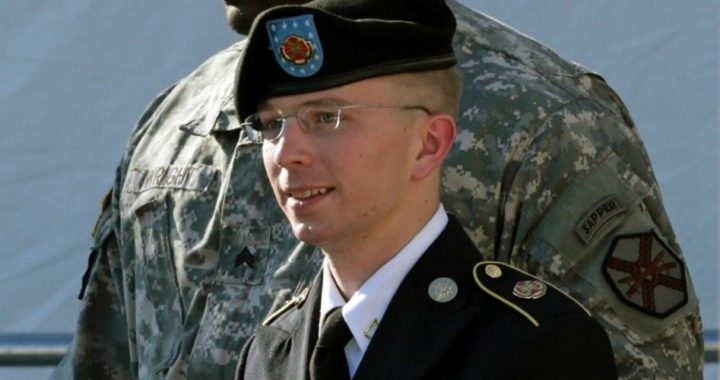
In a military court on February 28, former Army intelligence officer Bradley Manning confessed to sending a record number of secret documents to Internet whistleblowing website WikiLeaks, but denied he had leaked any information to the enemy. Manning pled guilty to 10 of 22 charges lodged against him in a “naked plea” — a plea without any stipulation for a lower jail sentence — but pled “not guilty” to the most serious charges, including “aiding the enemy,” which could bring a life sentence. The 25-year-old Manning could still get 20 years in prison for the 10 criminal counts for which he has admitted guilt.
Manning explained in a long 35-page document that his intent in leaking the documents was to inform the American people about the war crimes and blood lust of some American soldiers in Iraq, and not to help America’s enemies. “”The most alarming aspect of the video to me was the seemingly delightful bloodlust the aerial weapons team happened to have,” Manning said during his hour-long reading of his explanation, adding that some U.S. soldiers “seemed similar to a child torturing ants with a magnifying glass.”
Manning is best known for exposing U.S. war crimes in Iraq that had been covered up by administration officials. In the most famous war crime Manning revealed through WikiLeaks, a video called Collateral Murder reveals a July 12, 2007 attack in a Baghdad suburb where the gunner of a U.S. Apache helicopter deliberately targeted a wounded Reuters Wire Service photographer and a good Samaritan who had stopped to take the reporter to the hospital. The trigger-happy Apache helicopter gunner had initially mistaken the photographer for an armed militia man (and thus, that wasn’t a war crime), but the gunner’s subsequent targeting of the wounded photographer and good Samaritan constituted a clear war crime. It has long been a war crime under both U.S. and international law to deliberately target a wounded and helpless combatant, and it is also a war crime to kill a civilian non-combatant. To this day, the U.S. government has never prosecuted the gunner for his war crimes.
“I began to become depressed at the situation we found ourselves mired in year after year. In attempting counterinsurgency operations, we became obsessed with capturing and killing human targets on lists,” Manning said of his intent. “I wanted the public to know that not everyone living in Iraq were targets to be neutralized.”
Manning is also presumed to be the source of hundreds of thousands of other Iraq and Afghan war documents, in addition to U.S. diplomatic correspondence, that found their way onto the WikiLeaks website.
Photo of Bradley Manning: AP Images



